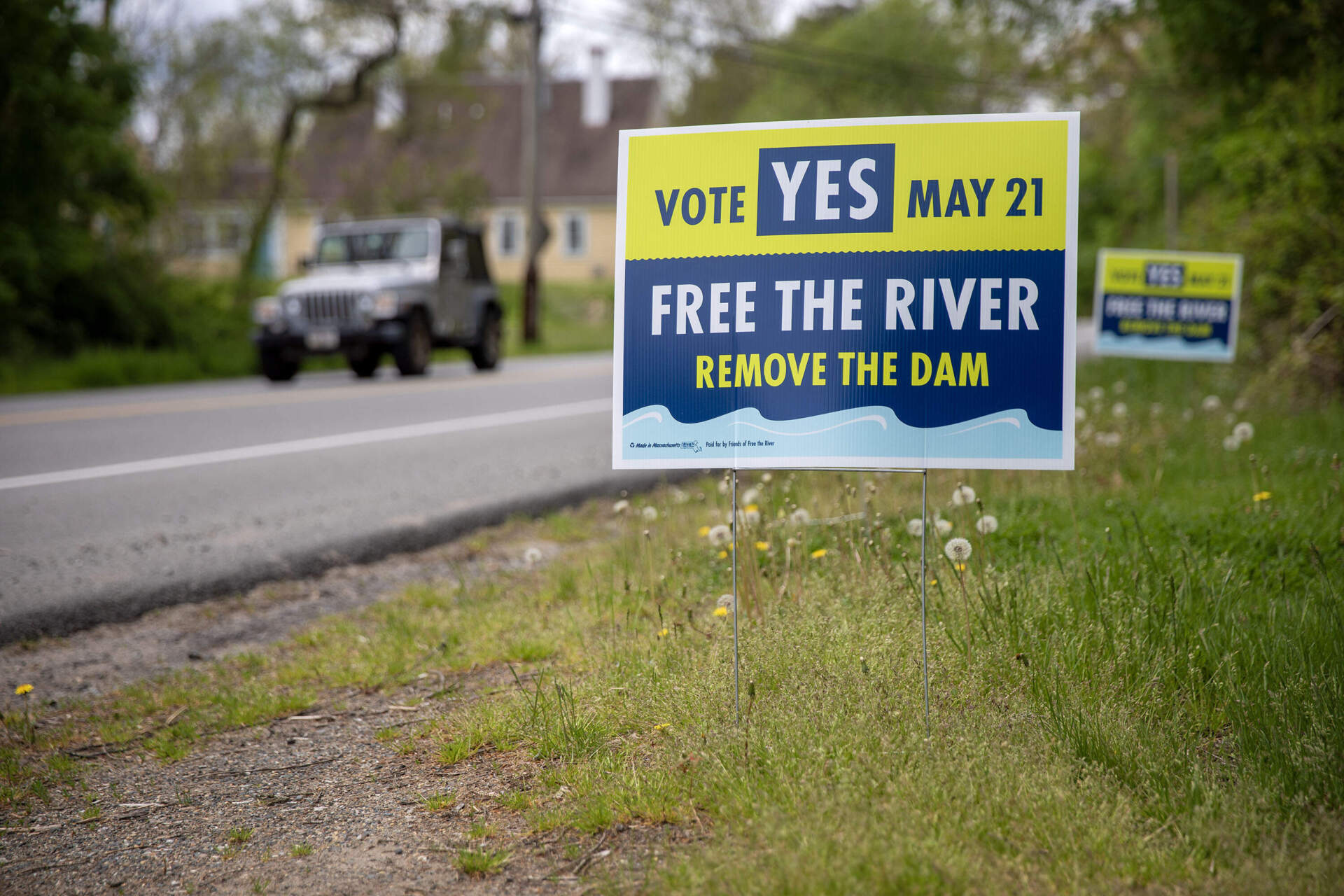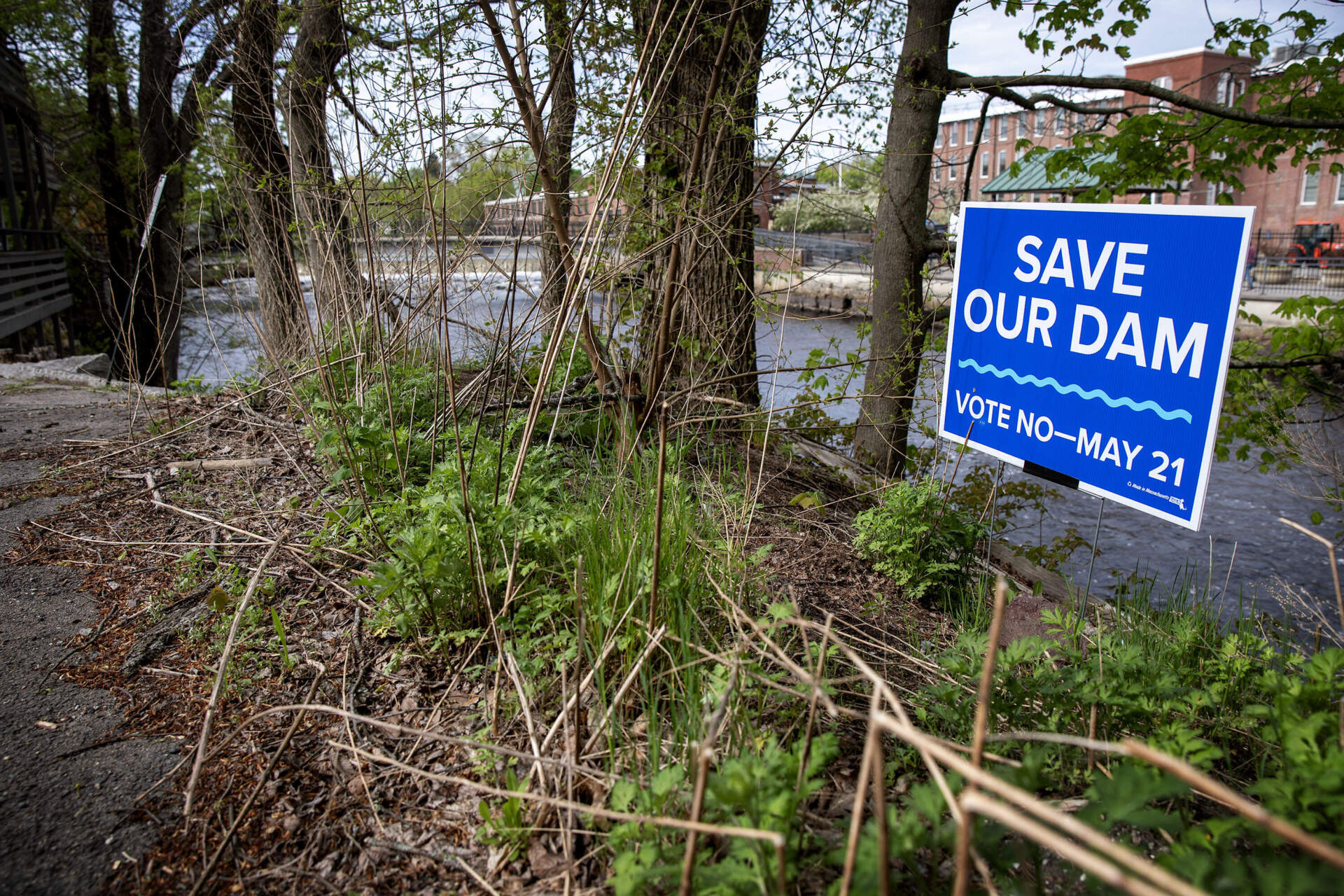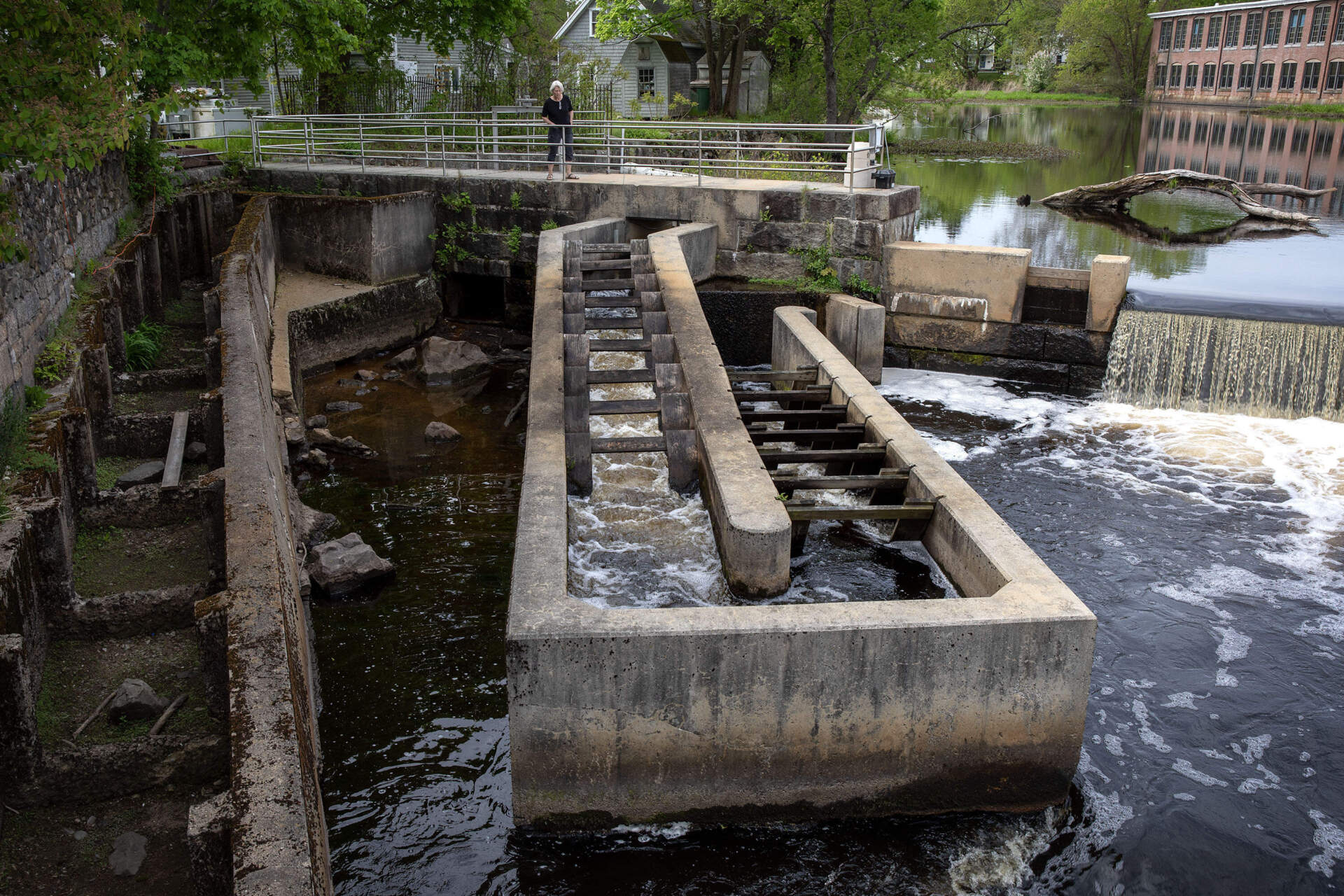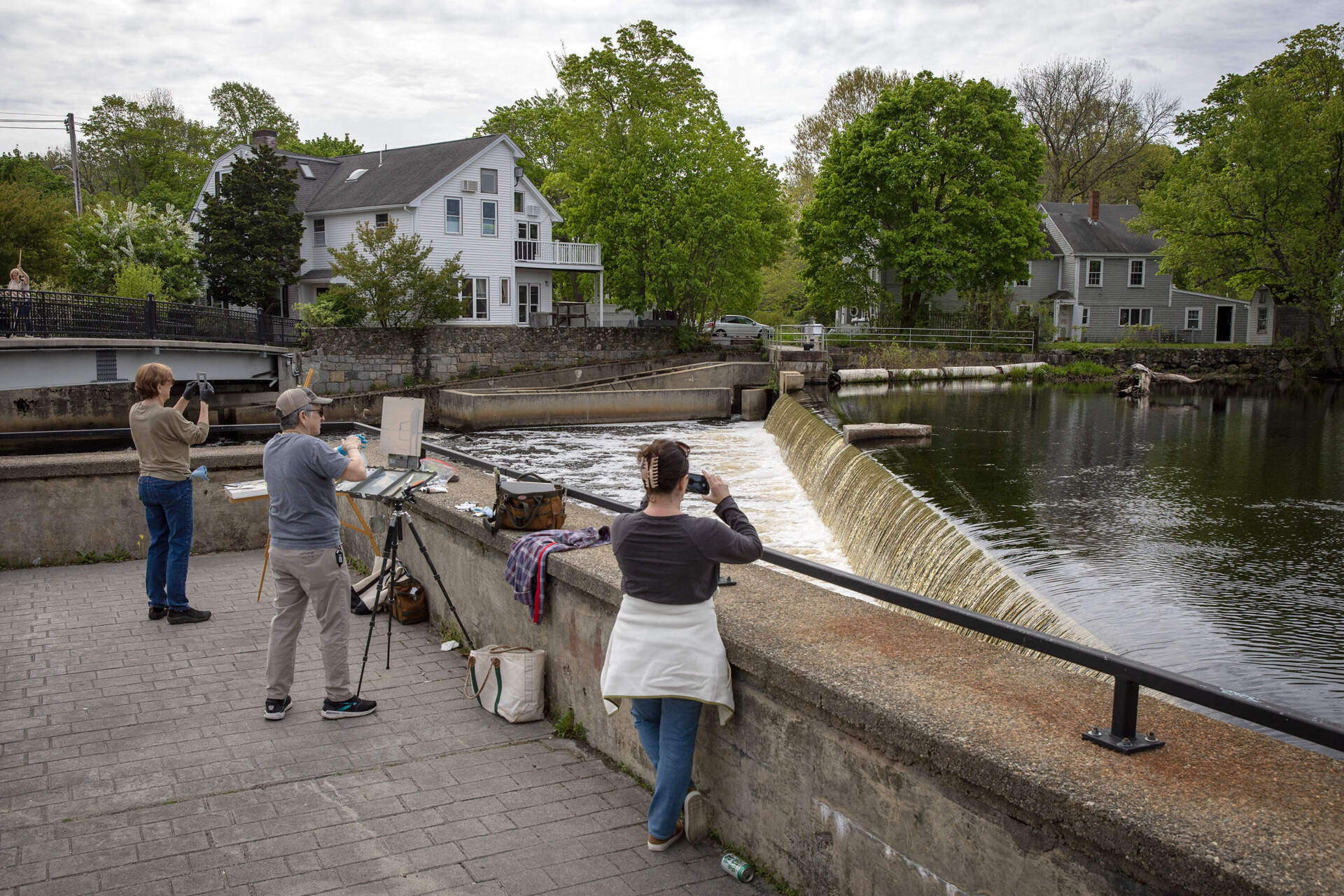Advertisement
In Ipswich, a dam's history butts heads with the river's future
Resume
Update: Ipswich residents voted 57% in favor of dam removal, according to unofficial results posted by the town. The select board now gets the final say in whether the dam is taken down.
The Ipswich Mills Dam is obsolete, and the town's residents are at odds over what to do about it.
On one side stand dam enthusiasts, many of whom say they grew up paddling in the dam's pond every summer and ice skating in the winter. To them, the dam reflects Ipswich's roots as an industry town that employed Polish and Greek immigrants, many of whose families remain in Ipswich to this day.
On the other side are residents who say the time has come to bid goodbye to the dam, restoring rare freshwater tidal wetlands, allowing migratory fish to thrive and providing a little cushion against climate change-related flooding in the process.
More than a decade of debate comes to a head May 21, when the town votes on whether to remove the dam. The vote is non-binding but serves as a temperature check for Ipswich's Select Board, which gets the final say in dam removal. The intensity of the debate has heated up ahead of the vote, with neighbors placing lawn signs in their yards to make it known whether they want to "free the river" or "save the dam," and emotional testimony from both sides at public meetings.

Why remove the dam now?
Built in the 1600s and enlarged in the 1880s to support a riverside mill, the dam was decommissioned in 1930s and for years has stood in the center of Ipswich as a reminder of the town's mill history.
Massachusetts has more than 3,000 dams, and many of them are obsolete. Dam removal has become a key aspect of climate resiliency action in Massachusetts, primarily because of flood prevention. Removing the dams and their resulting ponds would restore the natural floodplain, giving excess water a place to go during heavy rain.
The state and federal government have both thrown their support behind the removal of the dam, providing millions in grant funding for the work.
The debate

Save Our Dam advocates question whether alternatives to full dam removal were ever considered, saying a full feasibility study on improving the existing fish ladder or building a new fishway with a more nature-like design to circumvent the dam was never completed. Removal opponents note the Ipswich River Watershed Association, which is consulting with the town on the project, has helped install fishways at other dams on the Ipswich River and its tributaries.
"These alternatives were reviewed and thrown out by basically staff people working for the town 10, 12 [years] or even longer ago without having a real public deliberation about how we should handle this asset," said Ipswich resident and removal opponent Carl Gardner.
According to Neil Shea, restoration program director at the Ipswich River Watershed Association, those alternatives were ruled out by the town early on because of the cost of construction and lack of space available to build an effective natural fish passage.

For dam advocates like Eric Krathwohl, issues upstream trump dam removal downstream. Currently, 14 communities draw from the river for municipal water supplies, and excess water withdrawals are threatening the health of the river. The nonprofit American Rivers named Ipswich River one of the country's most endangered in 2021.
"Our view is that, hey, solve the problems upstream first, and then look at a fishway here," said Krathwohl, whose property abuts the mill pond created by the dam.
When asked about this by dam advocates during a recent event hosted by the watershed association, marine habitat resource specialist Brian Kelder said removing the mill dam is "not the silver bullet that is going to fix the Ipswich River," but he said the issues should be worked on in concert. Kelder works for National Oceanic and Atmospheric Administration, which has put funding toward removal.
While the discussion at the event was civil, the tension of the debate in town has reared up on occasion. Emotions over the project can run high, especially when it comes to the history of Ipswich and connection residents have to the dam.
Advertisement
The history

Frank Magilligan, a Dartmouth professor who has studied both the impacts of dam removal on environments and the surrounding citizen debates, said history is a frequent argument that arises around removal.
"One of the main [arguments], especially for New England, is an incredible attachment to place. And so the dams are evocative of history, our colonial history. And you know, you can't ignore that," said Magilligan.
But he said that while dams have historical significance, their lasting place in rivers actively harms the environment.
The Ipswich Historical Commission, a branch of the town's government, has endorsed the dam removal. The commission was asked by the select board to give its opinion the project, and the subsequent report discussed both the use of the river for fishing by Indigenous people before colonization and by European settlers for years before the dam was put in.
While the report said the dam should be memorialized for its contributions to the development of the town, the commission wrote it "believes that we can best preserve the history of the Ipswich River by freeing it from unnecessary man-made encumbrances."
Shea, who grew up in Ipswich and now lives in neighboring Topsfield, said he understands why people have strong ties to the dam and are worried about how removal will change the look of the river.
"We've never not acknowledged that there's going to be a change," said Shea. "We're acknowledging that, but trying to also say that if you truly love the river, this is what's best for the river."
"We know that the project opponents love the river too," Shea added. "That's why they're fighting so hard on their end."
This segment aired on May 21, 2024.
